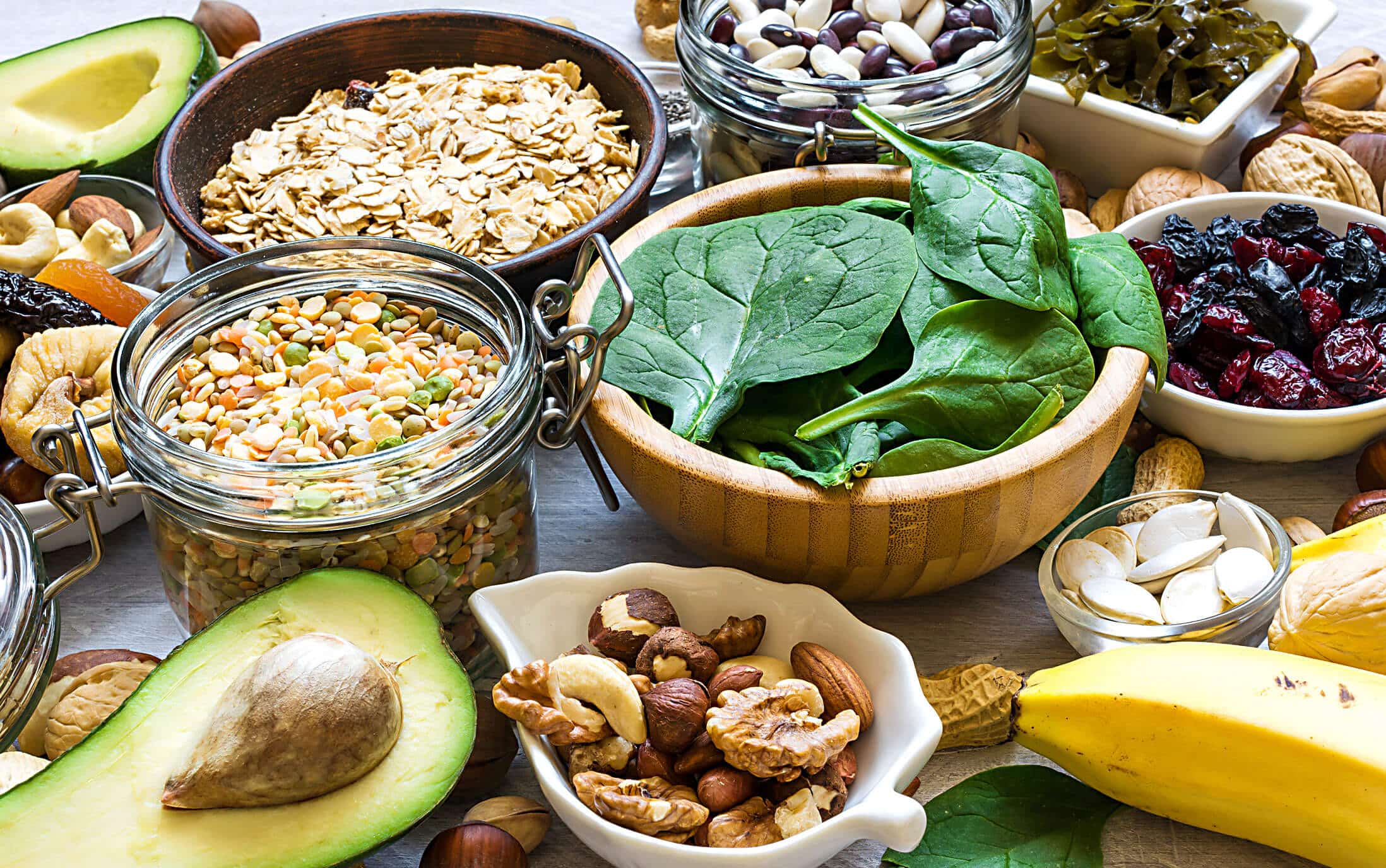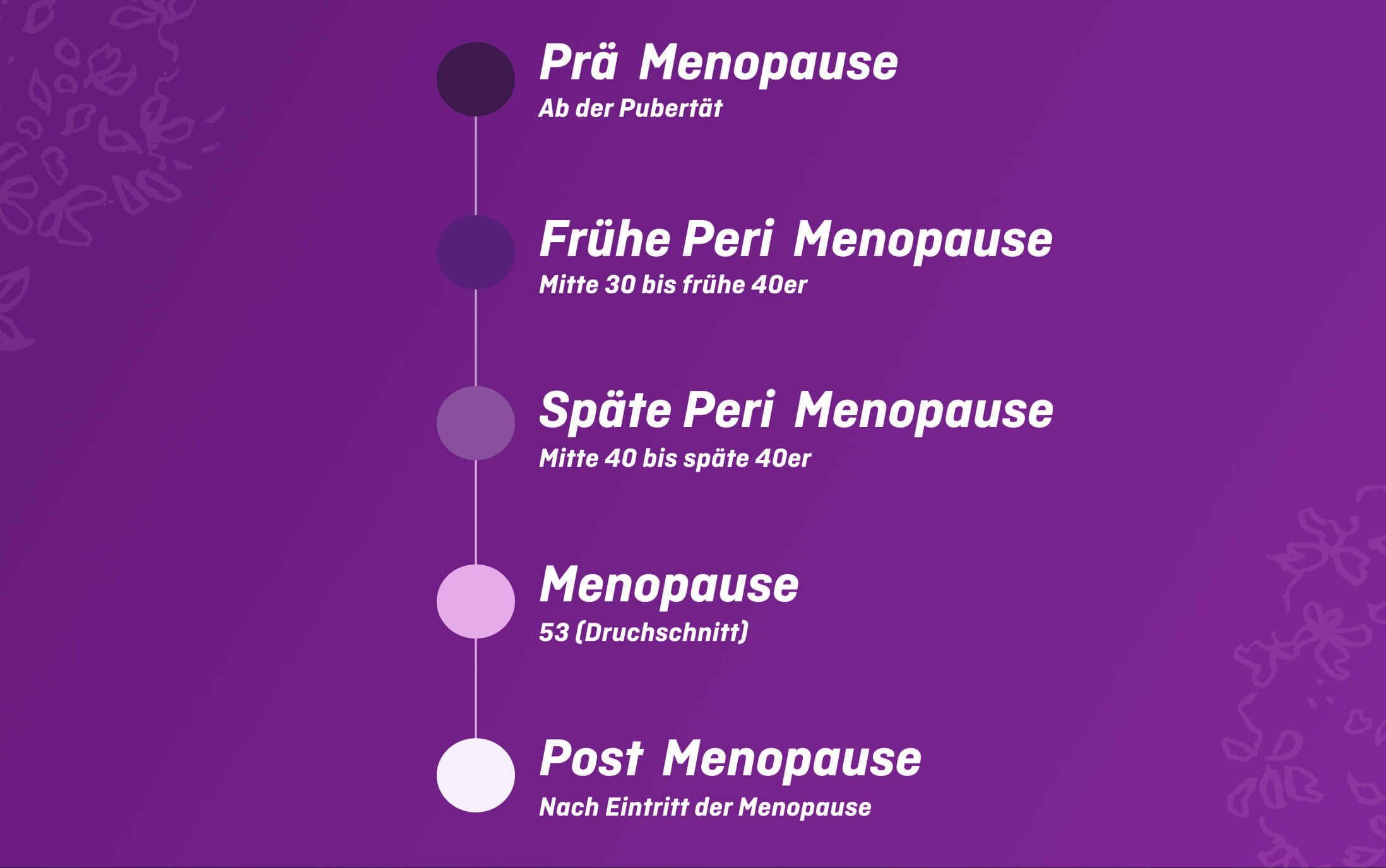Diet during the menopause
The majority of menopausal women complain about weight problems. Reasons for overweight should be seen as multi-factorial and must be looked at individually.

The majority of menopausal women complain about weight problems. Reasons for overweight should be seen as multi-factorial and must be looked at individually. Factors such as stress, lack of exercise and time shortages vary greatly from woman to woman. Some factors such as the breakdown of muscle mass, decelerated metabolism and reduced oestrogen production affect every woman. A harmonious trio of healthy diet, regular exercise and sufficient relaxation form a healthy lifestyle.
A healthy diet is characterised by plant-based, fibre-rich diversity. Wholegrain products such as wholegrain bread, pasta or rice are the focus here. Furthermore, your meal plan should include fresh fruit, vegetables and raw vegetable salad several times a day. Here, the energy density is particularly low, with simultaneous, high nutrient density. Animal protein should be consumed in moderation. Marine fish, meanwhile, can be consumed twice a week without any worries. Otherwise, you should opt for vegetable oils and fats in your fat consumption. For carbohydrates, you should pay attention to long-chain carbohydrates, as is the case with wholegrain products. These take longer to digest and make you feel fuller for longer. Avoid excessive consumption of industrial sugar. As a basis, you should always keep in mind: consume the freshest possible, regional products, with as little processing as possible and in their natural form. Also make sure to follow a varied diet.
Protein is underestimated
The natural loss of muscle mass increases the focus on protein consumption. Protein is essential for the body and counteracts the breakdown of muscles. Good sources of protein are fish, lean meat, nuts, milk and dairy products, pulses and wholegrain products. Be aware that the consumption of protein always needs to be looked at in combination with exercise. You can best counteract the loss of muscle mass if you exercise regularly.
Eating habits
One of the main causes of facial complaints are our eating habits. Stick to a few ground rules to understand and notice better what your body needs and how much it needs.
Pursue a conscious diet; this means that you should take time for your meals. Do not eat at your desk, but even leave the office if possible. Getting out into the fresh air not only boosts your mood, but you also exercise at the same time and can do something for your vitamin D levels.
Cook for yourself as often as you can, such as with your family or partner. In this way, you will know exactly what is in your food and can regulate it better. During preparation, make sure to stew and steam instead of deep-frying and frying. And if you do not want to give up the snacks: Snack right after your main meal, when your blood sugar level is already elevated. Snacks in between throw your blood sugar out of whack and cause ravenous hunger attacks.
The time of the meals plays a key role, but is heavily dependent on individual strategies. Anyone who, for example, practices intermittent fasting, severely limits the time of their meals automatically. In general, you should not eat too late and in the evening, should instead go for something light. If you come home late with ravenous hunger and then properly dig in, then you have forgotten to eat enough during the day. Try to avoid these moments. Not only do you sleep more poorly on a full stomach, but your body also no longer burns the calories and stores them instead.
Hot flushes and sweat outbreaks are among the most common menopausal complaints. Especially here, you can easily counteract these with some small tricks. Avoid excessive consumption of coffee, black tea and alcohol. Spicy meals should also be avoided. Instead, season using fresh herbs.
And very important: Drink enough throughout the day, at least 2 to 3 litres a day. Diluted fruit juices, mineral water, unsweetened herbal or fruit tea are ideal.
Offset the trend with sport
Many women experience during the menopause: “I eat just like I used to, but I’m gaining weight.” And that is exactly where the problem is. As we get older, our basal metabolic rate falls. This is part of the energy that our body burns during absolute rest. If the basal metabolic rate falls, but our diet stays the same, our energy balance goes into the positive – and that is what we want to urgently avoid. Because the target at the end of the day is always a negative energy balance – the so-called calorie deficit – if you want to lose weight.
Factors that influence the energy balance are:
- Basal metabolic rate
- Active metabolic rate (physical exercise)
- Diet
The more exercise I integrate into my everyday life, the lower my energy balance is. That is what we want to achieve. By the way: Muscle mass significantly influences the energy balance. The more muscles you have, the more energy the body burns at rest. For this reason, strength training is always a key component in reducing weight, along with its many other positive effects. This means you should train major muscle groups such as back, legs and buttocks.
One positive side effect of physical activity is also that the feeling of saturation is perceived more strongly with meals, stress is reduced and the appetite impulse is lowered.




